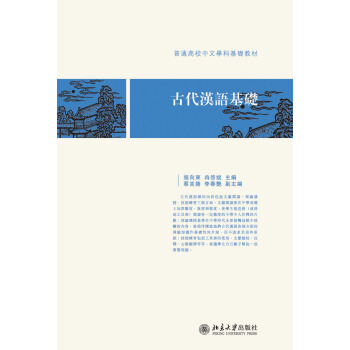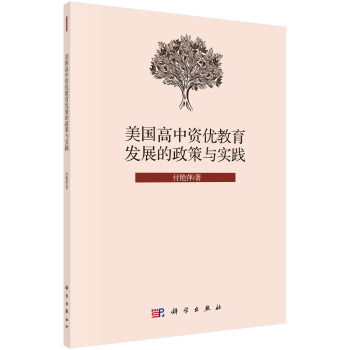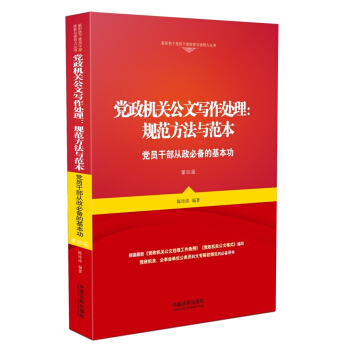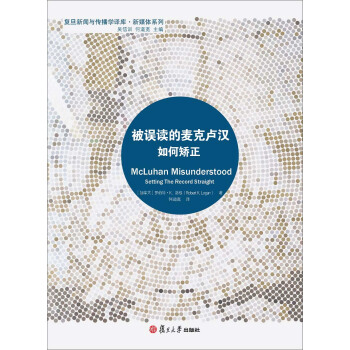

具体描述
内容简介
社会语言学是研究语言与社会多方面关系的学科,它从社会科学的不同角度,诸如社会学、人类学、民族学、心理学、地理学和历史学等去考察语言。自20世纪60年代发端以来,社会语言学已经逐渐发展成为语言学研究中的一门重要学科,引发众多学者的关注和探究。“牛津社会语言学丛书”由国际社会语言学研究的两位领军人物——英国卡迪夫大学语言与交际研究中心的教授Nicolas Coupland和Adam Jaworski(现在中国香港大学英语学院任教)——担任主编。丛书自2004年由牛津大学出版社陆续出版以来,推出了一系列社会语言学研究的专著,可以说是汇集了这一学科研究的新成果,代表了当今国际社会语言学研究的高水平。
《牛津社会语言学丛书》从中精选出九种,引进出版。所选的这些专著内容广泛,又较贴近我国学者研究的需求,涵盖了当今社会语言学的许多重要课题,如语言变体与语言变化、语言权力与文化认同、语言多元化与语言边缘化、语言与族裔、语言与立场(界位)、语言与新媒体、语用学与礼貌、语言与法律以及社会语言学视角下的话语研究等等。其中既有理论研究,又有方法创新;既有框架分析建构,又有实地考察报告;既体现本学科的前沿和纵深,又展现跨学科的交叉和互补。
相信《牛津社会语言学丛书》的引进出版能为从事社会语言学研究的读者带来新的启示,进一步推动我国语言学研究的发展。
目录
AcknowledgementsContributors
1.Multilingualism and the Periphery
2.Repositioning the Multilingual Periphery: Class, Language, and Transnational Markets in Francophone Canada
3.What Makes Art Acadian?
4.Tourism and Genderin Linguistic Minority Communities
5.HeteroglossicAuthentiatyin SirniHeritage Tourism
6.Linguistic Creativityin Corsican Tourist Context
7."Translation in Progress": Centralizing and Peripheralizing Tensions in the Practices ofCommeraaIActors in Minority Language Sites
8.Welsh Tea: The Centrin8; and Decentring ofWalesand the Welsh LanguaS;e
9.Ihe (De-)Centring Spaces ofAirports: FramingMobility and Multilingualism
10.Ihe Career of a Diacritical Sign: Language in Spatial Representahons and Representational Spaces
11.The PeripheralMultilingualism Lens: A Fruitful and Challenging Way Forward?
Index
精彩书摘
《牛津社会语言学丛书:语言的多元化与边缘化》:This book is an exploration of the ways in which centre-periphery dynamics shape multilingualism. This exploration focuses on peripheral sites, which are defined as such by a relationship (be it geographic, political, economic, etc.) to some perceived centre. Viewing multilingualism through the lens of centreperiphery dynanucs helps to bring forth the language ideological tensions which
are evident in issues oflanguage boundary-malang,language ownership, commodification, and authentidty. It also highlights the ways in which speakers seek novel solutions in adapting their linguistic resources to new situations and developing innovatirre and creative lan8:uage practices.
The sites of concem to us in this volume involve complex multilinS;ualism and minoritylanguages-the minoritization oflangua8;es beingpart ofperipheralization processes-and as such are subject to the dynamics ofrene8;otiation and contestation characteristic of the centre-periphery relationship.ln this volume, we explore multilinguaLism in minority language sites in order to examine how the dynamics of centre-periphery relations might shape language practices, and how these practices might,in turn, have wider resonance beyond the sites underinvesti8ation. We see these peripheral contexts as "crucial sites" (Philips 2000) for understanding the current sociolingLustics ofglobalization (Coupland 2003, 2010; Blommaert 2010), although they are often ne81ected sites in sociolinguistic research, with the focus predominantly on urban spaces for understanding the linguistic dimension to contemporary globalization (cf. e.g;. Block 2005, Harris 2006, Rampton 2006, Mac Giolla Chrtost 2,007; Pennycook 2010).
Centre-periphery dynamics-and how they are imagined-have a significant impact on the way that multilingualism in minoritylanguage contexts is conceptualhed and practised.An unstable modelofcentre-periphery calls for a reassessment of whatlinguistic and cultural peripheries are, under globalization, and an exploration ofhow people evaluate and work discursively with these reconfigurations. Minoritylanguage sites are subj ect,by necessity, to various-and often conflicting-language ideologies, norms, and practices. These are spaces where tensions between various language ideo1ogies are often made expliat, and their logics and borders are being tested (see e.g. da Silva, McLaughlin, and Richards 2006; Jaffe 2009; Pietikainen 2010). Despite the fact that linguistic minority sites are often constructed from the centre as linguistically and culturally homogeneous, and while they may also be constructed internallyin this wayin order to pursue particular rights and economic benefits, the everyday language practices tend to be mixed, flexible, and diverse. What we want to explore in this bookis the evolution of language practices which, on the one hand, challenge and disregard the centrist ideology and the normativity of parallel monolingualisms (cf. Heller 1999, 2003, 2006, Jaffe 2006), whilst, on the other hand, relying on it as a necessary resource (Moore, Pietikainen, and Blommaert 2010; Pietikainen and Kelly-Holmes 2011), In consequence, this volume is concerned with processes of peripheralization and of centralizatron, since the centre-periphery relationship is never fixed, but instead constantly renegotiated and mutually constitutirre. Key to this examination is the problematizing of two clashing perspectives on multilingualism in relation to minority languages: the standard language perspective, which is still largely informed by a view of languages and speech communities as bounded entities, so-called segregational linguistics (cf. Harris 1996), in contrast with the heteroglossic or polynomic perspective (e.g, Dufva 2004; Jaffe 2007, Zarate, Levy, and Kramsch 2008, Pennycook 2010), which emphasizes hybridity, fluidity, partial repertoires, and commuruties of practice. Given the complexity of contemporary multilingual processes, we see an inherent problem in adopting; either of these approaches exclusively, and we see the peripheral perspective as a way of highlighting this and moving forward our thinking on multilingualism. Furthermore, the current globalizing processes call for examination of the different ways in which peripheralization and eentralization happen, forcing us to ask how a particular kind of multiLingualism in a particular kind of site becomes copstructed as peripheral or as central, with what kind of consequences, driven by whom, and with effects for whom.
……
用户评价
我通常不太读社会语言学的书,总觉得会很干涩,但这本书完全出乎我的意料。它的文笔流畅,充满了对人类社会细微之处的敏锐洞察力。最吸引我的是作者对“多元化”的积极肯定,这在充斥着“标准”和“统一”的现代社会中,显得尤为可贵。书中对不同语言形态的尊重和描绘,充满了人文关怀。阅读过程中,我仿佛置身于世界各地不同的角落,倾听着那些鲜活的、充满生命力的语言在日常生活中碰撞、融合与挣扎。作者似乎拥有将无声的语言现象“翻译”成视觉体验的能力,读起来画面感十足。它让人重新认识到,每一种语言形式,无论多么微小或不被主流所知,都承载着一个群体的历史记忆和生存智慧。这本书的价值不仅在于学术贡献,更在于它提供了一种更包容、更多元的视角去看待我们这个复杂而斑斓的世界,让人读完后心胸都开阔了许多。
评分我很少在阅读学术类的书籍时产生强烈的代入感,但这本书做到了。它不仅仅是在讨论抽象的“语言”概念,更是在讲述“人”的故事。作者似乎能够捕捉到语言在具体情境中发挥作用时的微妙张力,比如在家庭内部、在职场竞争中,或者在跨文化交流的瞬间,语言是如何构建或瓦解人与人之间关系的。阅读过程中,我不断地在书中找到自己和身边人的影子,那种被精准描绘出来的语境和心理活动,让人感觉非常真实可信。它没有宏大的叙事,而是专注于那些边缘地带的声音,那些常常被沉默所淹没的群体。这种“自下而上”的观察视角,让整本书充满了生命力和温度。读完后,我感觉自己对周围环境的感知力都提高了,学会了去倾听那些隐藏在日常对话背后的深层含义,是一次非常扎实且有启发性的阅读体验。
评分这本书的名字听起来就让人充满好奇,似乎触及了我们日常生活中那些习以为常却又常常被忽视的现象。它不像那些晦涩难懂的学术专著,反而像是一扇通往广阔世界的窗户。我尤其欣赏作者那种深入浅出的叙述方式,将那些复杂的理论概念用生动的故事和鲜活的案例串联起来。阅读过程中,我时常会停下来,回想自己过往的经历,那些曾经模糊的认知在书中的论述下变得清晰起来。比如,作者对不同社群之间语言差异的剖析,让我对那些看似“奇怪”的口音或用词有了全新的理解,不再是简单地贴上“错误”或“不规范”的标签,而是将其视为一种文化和身份的表达。整本书的节奏把握得非常好,既有宏观的理论建构,也有微观的个案分析,读起来一点也不枯燥,反而像是在与一位睿智的长者进行深度对话。它不仅仅是一本语言学的书,更是一部关于人类社会、文化变迁和身份认同的深刻反思录,让人在合上书页后,仍能久久回味。
评分这本书的结构安排极其巧妙,每一个章节都像是一个精心设计的迷宫,引导着读者层层深入。我尤其欣赏作者在处理敏感议题时的克制与专业,既不失批判的力度,又保持了学术的严谨性。那些关于语言政策和教育实践的讨论,对我这个身处教育行业的人来说,简直是如获至宝。它让我明白了,看似简单的语言教学改革背后,其实牵动着复杂的社会认同和文化权力博弈。书中的引用和脚注也非常扎实,展现了作者深厚的学识功底,但即便是不了解专业背景的普通读者,也能通过清晰的逻辑链条跟上作者的思路。这本书的魅力在于它的层次感:表层是语言现象的描述,中层是理论的构建,深层则是对人类主体性的探讨。我花了很长时间去消化吸收里面的内容,因为它不是那种可以快速翻阅的书,而是需要慢下来,细细品味的经典之作。
评分读完这本书,我感觉自己的世界观被颠覆了。原本以为语言就是一种工具,用来交流信息,但这本书让我看到了语言背后潜藏的巨大权力结构和社会张力。作者的笔触犀利而深刻,尤其是在探讨“边缘化”这个主题时,那种毫不留情的揭示让人感到震撼。那些被主流话语排斥的方言、少数族群的语言,是如何在历史的长河中被一步步边缘化的,书中的论证逻辑严密,引人深思。我特别喜欢作者在案例分析上的独到见解,那些看似琐碎的语言现象,经过作者的提炼和分析,立刻展现出其深刻的社会学意义。这不仅仅是书本知识的堆砌,更是一种批判性思维的训练。它促使我开始审视自己日常交流中的用词习惯,反思自己是否无意中成为了维护某种语言霸权的帮凶。这本书带来的阅读体验是颠覆性的,它要求读者不仅要“看进去”,还要“想出来”,将书中的理论框架应用于现实生活的审视,非常具有实践价值。
相关图书
本站所有内容均为互联网搜索引擎提供的公开搜索信息,本站不存储任何数据与内容,任何内容与数据均与本站无关,如有需要请联系相关搜索引擎包括但不限于百度,google,bing,sogou 等
© 2026 book.coffeedeals.club All Rights Reserved. 静流书站 版权所有


![女性、性别与研究:中国与北欧视角 [Women, gender and research Chinese and Nordic perspectives] pdf epub mobi 电子书 下载](https://pic.windowsfront.com/12299664/5acac3c0Na068fb86.jpg)
![牛津社会语言学丛书·法律行业内外的语言交流:法律文本之旅 [Legal-Lay Communication Textual Travels in the Law] pdf epub mobi 电子书 下载](https://pic.windowsfront.com/12309090/5aa797f8N35ef4bad.jpg)
![社会变迁与中国居民生活质量 [The perspective of social changes of Chinese residents' quality of life] pdf epub mobi 电子书 下载](https://pic.windowsfront.com/12311221/5aa77205Naa3695ea.jpg)


![地方政府债务融资可持续性研究/中国宏观经济丛书 [Study on How the Sustainablity of Regional Governments' Financing in China] pdf epub mobi 电子书 下载](https://pic.windowsfront.com/12341951/5b0bbbe6Nac506bc0.jpg)
![线性文化景观的保护与发展研究:基于景观性格理论/同济博士论丛 [Research on the Conservation and Development of Linear Cultural Landscape] pdf epub mobi 电子书 下载](https://pic.windowsfront.com/12344087/5b2074eeN3c80aa23.jpg)




![编辑审稿录 [An Editor's Notes on Reviewing Drafts] pdf epub mobi 电子书 下载](https://pic.windowsfront.com/12354212/5b07fb4cNbceaefb5.jpg)



![杭州城市国际化发展报告(2017) [Annual Report of Hangzhou Internationalization(2017)] pdf epub mobi 电子书 下载](https://pic.windowsfront.com/12362609/5b239ee0N2fe6e884.jpg)


